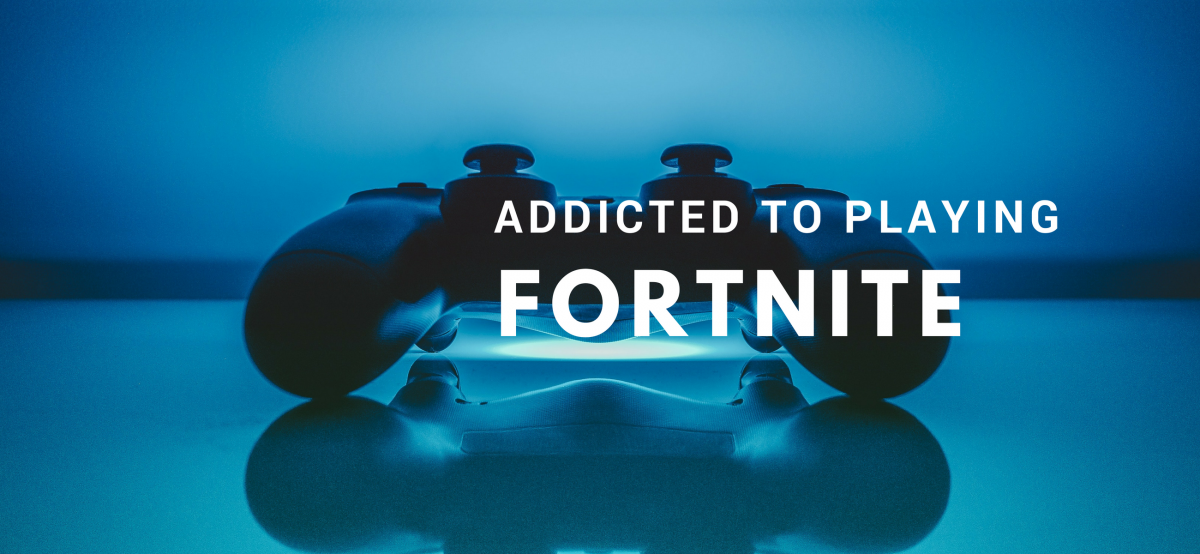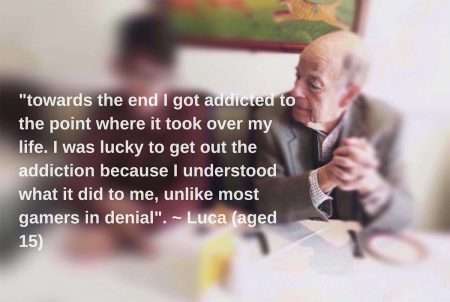A dystopian world and a world-wide broadcasted death match. One hundred players stranded on an island; only one will survive. This is not the plot of the latest Hunger Games movie, this is Fortnite. At Castle Craig – we can help with treating Gaming Addiction.
Developed by Epic Games and People Can Fly, this survival game has swept the world and has made many people, especially kids, quite literally, addicted.
Fortnite comes in two versions: Save the World and Battle Royale. Battle Royale, which was released in September 2017 has received a lot of hype. Because it’s free to play and available on most gaming platforms, including PlayStation 4, XBOX One, PC, Mac and even the iPhone, the game has become incredibly popular within a short period.
This online game that can be played in single or multiplayer mode and has also become a social arena between players. People can play solo or in teams, scavenging the island for resources and weapons to aid in their survival.
Much like in the Hunger Games, players are forced to run into each other over time because the play area shrinks throughout the game, until only one player remains. Each match lasts approximately 20 minutes.
Many players enjoy live-streaming their playing, receiving an extra boost from the social attention and popularity. Professional gamers use this to make money and can earn around £3000 a month or more from donations and ad revenue. Platforms like Amazon’s Twitch and Facebook are often used for this purpose.
Gaming Gone Wrong
Fortnite Addiction made new headlines this week after the NHS announced that people can now receive treatment for gaming addiction. This news went viral after a three-year battle to recognise gaming addiction was won by Kendal Parmar, who is a mother of a 15-year child addicted to the Fortnite game.
Before discovering Fortnite, Kendal Parmar’s son could have been described as a golden boy who did well in school and sports, and had a vibrant social life. After developing a gaming addiction, he became uncontrollable and withdrawn, skipped school for a year and was later hospitalised for eight weeks due to Vitamin D deficiency.
Despite his mother’s many efforts to limit or distract him from his game, her son always seemed to circumvent her attempts and continue to play.
Kendal Parmar is not the only parent who has had to deal with the consequences of gaming addiction. Similar stories have popped up on several news outlets, including one of a ten-year old girl who refused to get off the game even to use the bathroom, and became violent when her dad tried to take away her XBOX. The girl is now in intensive therapy.
Fortnite Addiction is an Illness
The NHS‘s move to recognise gaming addiction as a disease was helped by the World Health Organisation’s (WHO) announcement in January 2018 that gaming disorder will be included in the ICD-11 (International Classification of Diseases), which is set to be published later this year, 2018.
To be diagnosed with the disorder one must show evidence of a decline in day-to-day functioning, including school, work, family, self-care or basic socialising. Gaming becomes an addiction when the game becomes a priority above all other needs.
The person must also exhibit these symptoms for at least 12 months, which has been criticised by some people. Due to smartphones and widespread internet access points, parents are not always privy to how much time their kids spend, or what they do, on the Internet.
Without the NHS’s recognition of gaming disorder as a serious problem, a person would not be able to receive proper treatment unless they paid £350 out of pocket for a private therapist.
This has even been recognised within a press release by National Health England.
Signs of Technology and Gaming Disorder
Nightingale Hospital became the first to specialise in technology addiction treatment in the UK. Addiction is the easiest to treat when caught early on, so parents are urged to be on the lookout for addictive behaviour, which according to the hospital’s website may present itself as:
- Preoccupation with the Internet or video game
- Interference with other activities due to time spent online or playing
- Failure to limit one’s time online or on a game
- Neglecting family, friends, school, work or self care
- Anxiety or restless when not online or playing
- Anger when confronted about one’s “addiction”/behaviour
- Foregoing other hobbies or enjoyable activities to play
- Neglecting sleep
Preventing Problems
Parents are also urged to set strict rules when it comes to gaming if a child starts exhibiting any of these symptoms. For example, some platforms allow parental controls, which allow parents to set time limits for gaming.
Another suggestion is to ban all technology, including their phones, from the child’s room after bedtime.
Finding another hobby or keeping the child busy with other activities can also distract kids from gaming.
Treatment for Fortnite Addiction
Treatment for gaming disorder and any behavioural addiction is necessary, because it can lead to other problems such as alcohol or drug addiction in the long term. This is called cross-addiction. For example, players who want to stay up all night to play may turn to amphetamines to stay awake or focused.
Proper assessment by a therapist is also necessary, because the cause for a gaming addiction may be due to an underlying depression or anxiety issues. Patients in this situation receive a dual diagnosis.
Therapy, such as Cognitive Behavioural Therapy (CBT) or Dialectic Behavioural Therapy (DBT), both of which are used by therapists at Castle Craig Hospital in Scotland, are two approaches used to treat behavioural addiction and gaming disorder. Therapy can be done both individually and in groups.
Treatment can be done as an outpatient or via a residential rehab programme. Castle Craig Hospital believes gaming addiction should be treated as seriously as an alcohol or drug addiction and recommends inpatient programmes, even for behavioural addictions, because it allows the person to be totally focused on getting better. Because one is completely removed from their environment and technology, there are no triggers or temptations. It’s essentially a gaming and technology detox.
Evidence That Fortnite Addiction is Still Misunderstood
Even though many parents and individuals who have been affected by gaming addiction are celebrating the NHS’s acceptance of gaming addiction, there are plenty of people who do not comprehend that addiction is a disease.
Some professionals criticised WHO’s classification of gaming disorder, not considering it a serious problem. WHO’s addition of the disorder was encouraged by the organisation’s motivation to keep up with modern day issues.
After being interviewed and written about in many news outlets, Kendal Parmar received a hefty amount of backlash from others, who called her “lazy” and a “bad parent” because she wasn’t able to control her son’s behaviour.
Kendal Parmar claimed she had trouble finding people who would take her seriously, speculating that it may be due to video games and gaming addiction being fairly new to the mental health field.
This shows that addiction is still not well understood in society, which can be discouraging for those who realise they have a problem. People with behavioural addictions, also known as process addictions, especially those with gambling addiction, often fail to ask or receive help because their peers do not see that they are sick.



